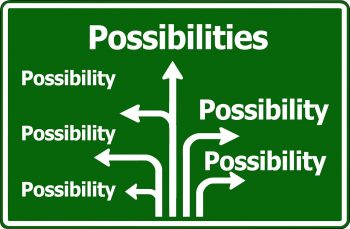Tag Archives: parts of speech
When English is Tense Posted by Gary Locke on Oct 31, 2019

In my capacity as Social Media Manager for Transparent Language, I oversee our blogs and our Word of the Day service. These are offered free as a way to help language learners. They are also quite interesting, and I learn a lot from them. I also learn from our subscribers. Many of you make keen…
The Advertising Jingle Posted by Gary Locke on Jul 11, 2019

You’ve heard them. They are the combination of a catchy tune and advertising copy. Most of them last only a few seconds. Which is, ideally, all the time you need to absorb the message and get that song stuck in your head. Today, we might call it an earworm. But, for many years it was…
The Many Possibilities of English Vocabulary Posted by Gary Locke on May 16, 2019

Many of us understand that homonyms are words with the same spelling or pronunciation but have different meanings and origins. We encounter homonyms every day. We also deal with polysemous words, or polysemes, which are words which can be used to express different meanings but have similar origins. The difference between homonymy and polysemy is…
English Punctuation Failures Posted by Gary Locke on Feb 4, 2019

We really don’t devote as much space in this blog to the little things. And by little things I mean periods, commas, quotation marks, question marks, and exclamation marks. Yet, we use those little dashes, dots, and curlicues every day. I didn’t even mention the ellipsis marks, parenthesis, colons, and semi-colons (there’s a reason for…
English Malapropisms & Mixed Metaphors Posted by Gary Locke on Jan 24, 2019

Mistakes happen. Like the blue-footed booby bird, goofy things turn up once in a while. It can’t be helped. When you are learning a language, and especially if you think you know common idioms and expressions, you just might say something that isn’t quite right. Hey, even if you’re a native speaker it can happen!…
When English Offers Choices Posted by Gary Locke on Nov 29, 2018

This past week I witnessed a customer at a store point to something and say, “I’ll have two of those.” Before placing the items in a bag and finalizing the sale, the clerk said, “These ones?” That response by the clerk was a redundancy, the use of an extra word which wasn’t needed. Because the…
Basic English: Positively Negative Posted by Gary Locke on Oct 11, 2018

Some of the most common words in English are negatives. These words express the opposite of a positive statement. There are a lot of them. However, this is English after all, so not all negatives fit into the same grammatical category. Let’s take a little time to clarify which part of speech these negatives belong…


